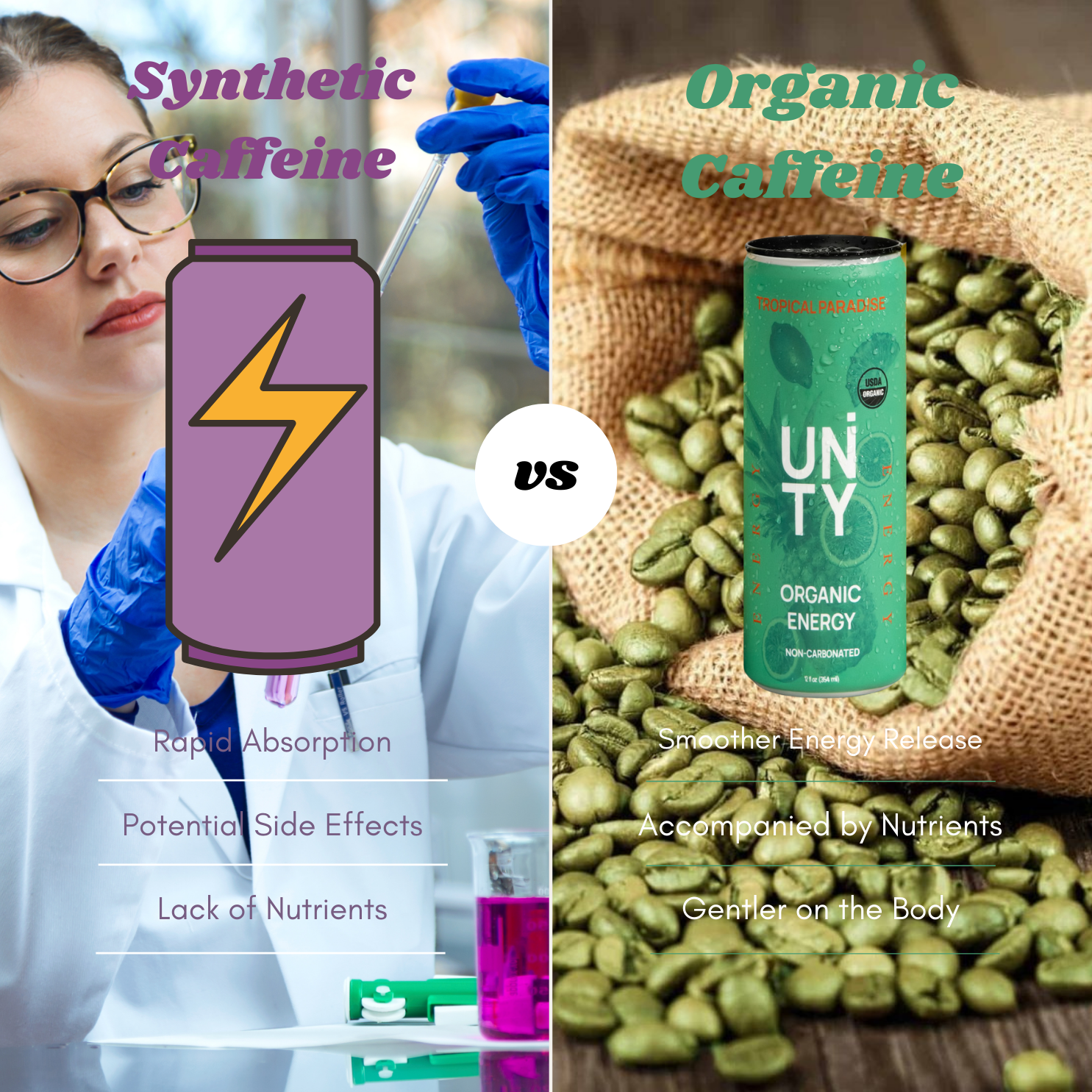Caffeine is a staple in many people's daily routines, providing the energy boost needed to power through long days and demanding tasks. However, not all caffeine is created equal. The growing interest in health and wellness has led to an important conversation about the differences between synthetic caffeine and organic caffeine. Let’s explore these distinctions and understand why choosing organic can make a significant impact on your health.
What is Synthetic Caffeine?
Synthetic caffeine is man-made and typically produced in a laboratory setting. It is often found in energy drinks, soft drinks, and dietary supplements. While it serves its purpose of providing a quick energy boost, synthetic caffeine can have varying effects on the body.
Key Characteristics of Synthetic Caffeine:
-
Rapid Absorption: Synthetic caffeine is often absorbed quickly by the body, leading to an immediate energy spike. However, this can also result in a rapid crash, leaving you feeling more tired afterward.
-
Potential Side Effects: Many users report jitters, increased heart rate, and anxiety when consuming synthetic caffeine. These side effects can be more pronounced, especially in higher doses.
-
Lack of Nutrients: Unlike organic sources, synthetic caffeine typically lacks additional health benefits, such as antioxidants and vitamins, that come from natural sources.
What is Organic Caffeine?
Organic caffeine, on the other hand, is derived from natural sources such as coffee beans, tea leaves, or cacao. This type of caffeine not only provides an energy boost but also comes packed with additional health benefits.
Key Characteristics of Organic Caffeine:
-
Smoother Energy Release: Organic caffeine is often absorbed more gradually, leading to a more sustained energy boost without the harsh spikes and crashes associated with synthetic alternatives.
-
Accompanied by Nutrients: Organic caffeine sources contain antioxidants and other beneficial compounds that can enhance overall health. For instance, coffee beans are rich in chlorogenic acids, which have antioxidant properties.
-
Gentler on the Body: Many consumers find that organic caffeine produces fewer side effects, such as jitters or anxiety, making it a preferred choice for those sensitive to caffeine.
Health Benefits of Organic Caffeine
Choosing organic caffeine can offer several advantages beyond just energy:
-
Better Focus and Clarity: The gradual release of energy from organic caffeine can help improve concentration and mental clarity throughout the day.
-
Fewer Additives: Organic products are less likely to contain artificial flavors, preservatives, and other additives, providing a cleaner option for health-conscious consumers.
-
Environmental Sustainability: Organic farming practices promote biodiversity and reduce the use of harmful pesticides, contributing to a healthier planet.
Conclusion
When it comes to caffeine, opting for organic sources can lead to a more balanced and beneficial experience. By choosing organic caffeine, you not only support your health but also enjoy additional nutrients and a smoother energy release.
As you navigate your caffeine choices, consider the source and the potential impact on your body and overall wellness. Embrace the benefits of organic caffeine—your body will thank you for it!



